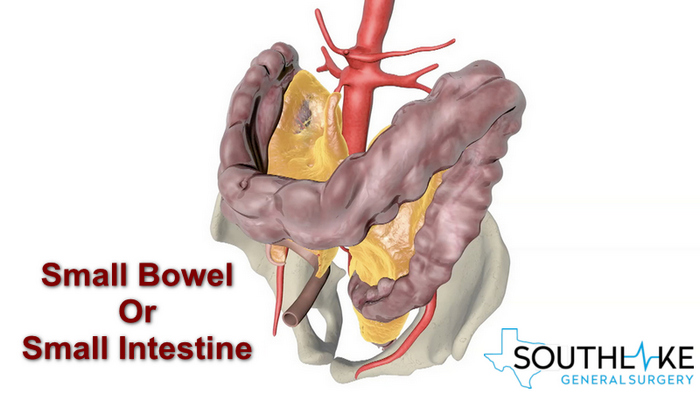The small bowel is part of the small intestine. The small intestine is 20-30 feet long with many folds which allows it to fit in the abdominal cavity. The small intestine is divided into 3 sections: the duodenum, the jejunum and the ileum.
Partly digested food from the stomach moves to the intestine for further digestion, all the Nutrients, vitamins, minerals, and water from food is further absorbed in the small intestine lining in the digestive process.
Small Bowel Obstruction
The small bowel obstruction can be partial or complete blockage of the small intestine, the condition leads to blocking of the content from passing through and further leads to problems in the absorption of the nutrient and fluids. In some serious cases of the small bowel obstruction, the blood supply might be compromised and damaging of the bowel tissue. All these conditions can result in small bowel obstruction and constipation at the same time.
What causes small bowel obstruction?
The small bowel obstruction and constipation can affect people of any age. There are a few risk factors and causes that lead to small bowel obstruction:
Adhesions: The bands of scar tissue that are formed after abdominal or pelvic surgery can make you more prone to small bowel obstruction. Small bowel obstruction after surgery can happen abdominal surgery is the leading cause of small bowel obstruction and constipation.
Hernias: The hernias are created due to weakened sections on the abdominal wall allowing segments of the intestine to poke out from the weak abdominal wall. This can reason behind the bowel obstruction. Hernias are the second most common reason behind the small bowel obstruction.
Inflammatory disease: Crohn diseaseand another such type of Inflammatory bowel disorders can damage parts of the small intestine. This can result in the narrowing of the bowel (strictures) or abnormal tunnel-like openings (fistulas)
Malignant (cancerous) tumors: Cancer can result in small bowel obstructions. Tumor does not usually begin in the small intestine but can spread to small bowel from the colon, female reproductive organs, breasts, lungs or skin.
What are the symptoms of small bowel obstruction?
Symptoms of small bowel obstruction may includes:
- Bloating
- Abdominal (stomach) cramps and pain
- Vomiting
- Nausea
- Dehydration
- Malaise (an overall feeling of illness)
- Lack of appetite
- Severe constipation.
In cases of complete obstruction, a person will not be able to pass stool (feces) or gas resulting in small bowel obstruction and constipation.
How is small bowel obstruction treated?
Hospitalization: The person can be hospitalized and given intravenous fluid (IV). The treatment includes bowel rest with nothing to eat (NPO), and, sometimes, bowel decompression through a nasogastric tube (a tube that is inserted into the nose and goes directly to the stomach).
Anti-emetics: Medication can be provided to help the patient to overcome nausea and vomiting
Small bowel obstruction surgical treatment:
Under severe cases such as small intestine is completely blocked or become strangulated you may need to undergo Small bowel obstruction surgical treatment. The goal of the surgical procedures is to identify and treat the cause of bowel obstruction. In some cases, it requires surgery to be performed on segment of surgery. Sometime the diseased segment may need to be removed or re-sectioned.

